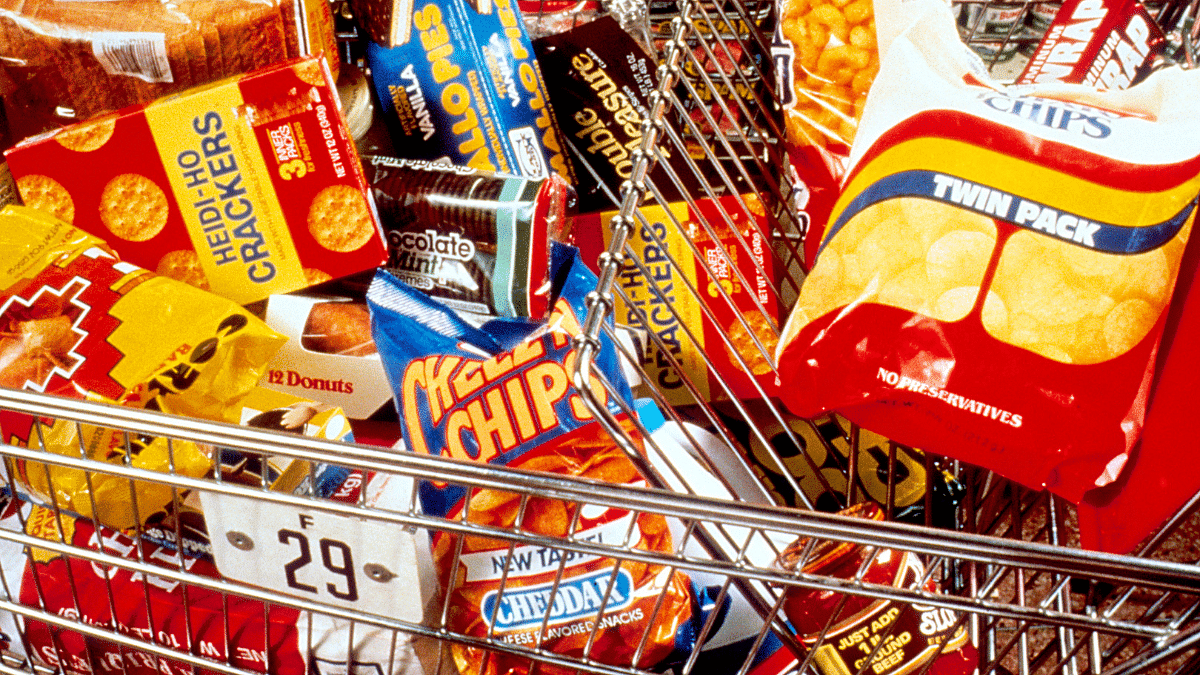
New Delhi: Higher intake of ultra-processed foods (UPFs) has been associated with increased risk of mortality, a large study has found, with such a diet also leading to major cardiovascular problems.
Published in the American Journal of Clinical Nutrition in January, the study shows that consuming more than two servings of ultra-processed foods (UPFs), such as soft drinks, chips, chocolate, and sweetened breakfast cereals each day may increase the risk of mortality by up to 28 per cent.
This risk is higher for those in low- and middle-income countries than for those in high-income countries, researchers of the study said.
The study is part of the ongoing Prospective Urban Rural Epidemiology (PURE) study — a large observational cohort in all continents (except Australia) that records habitual food intake and classified the consumption of UPFs for each participant.
For the study, researchers collected data from 1,38,076 participants who were between the ages of 35 and 70 and had no cardiovascular diseases at the beginning of the study. The participants lived in 21 countries on five continents and were followed for an average of 10.2 years.
The study noted that there are several hypotheses that may explain the link between ultra-processed food intake and health outcomes.
“Higher consumption of UPFs increases exposure to trans fats, artificial ingredients, colors, and other environmental contaminants. In addition, compounds such as acrylamide, which is formed during the thermal processing of high-carbohydrate foods, may be neurotoxic and carcinogenic,” the researchers wrote.
Since 80 per cent of the cardiovascular burden occurs in low- and middle-income countries, emphasizing the harm of UPF intake may play an important role in the prevention of mortality in those areas, the research said.
Also Read: Your food packet can be ultra-processed if it has more than 5 ingredients. Read the label
Why the health outcomes — higher trans fat, plasticizers
For the study, the team used country-specific food questionnaires to determine individuals’ food intake. For India, foods such as kheer, Indian sweets, and namkeen were also added to the ultra-processed foods list.
They then noted the total number of deaths among participants caused by cardiovascular events and other causes.
Researchers made a distinction between cardiovascular diseases and cardiovascular events.
Cardiovascular events refer to any incidents that may cause damage to the heart muscle, for instance, a heart attack or a myocardial infarction (MI).
On the other hand, cardiovascular diseases refer to the conditions that cause these events — such as clots in veins and congenital heart defects.
However, although several studies in the past have associated the consumption of ultra-processed foods with that major cardiovascular diseases, the current study found no such link.
This, the researchers said, could be because most participants in the PURE study were from low- and middle-income countries, where UPFs were more recently introduced and consumption was low compared with high-income countries.
“Also, a longer duration of consumption may be required for the harmful impacts of ultra-processed foods to become evident,” they wrote in the study.
The study said that exposure to plasticizers such as bisphenol S, used in packaging, may also explain the harmful effects of these UPFs on health outcomes. Plasticizers are chemical additives for making plastics or rubbers softer and more flexible.
Such food also stimulates the growth of gut microbiomes that promote inflammation, which in turn increases the risk of cardiovascular diseases and mortality, the study says.
(Edited by Uttara Ramaswamy)
Also Read: Different kinds of labels on food packs affect your junk-food buying decisions, finds survey
Source: The Print

